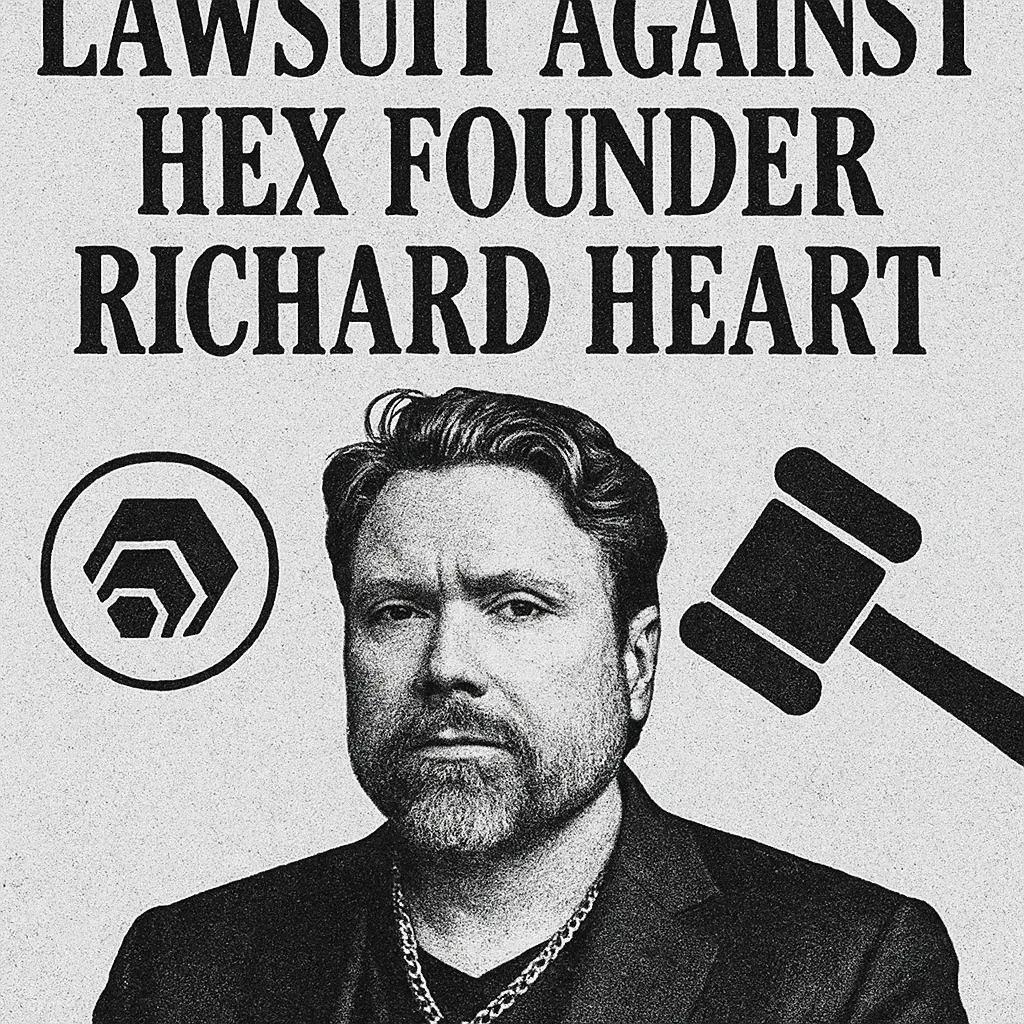
Lawsuit Against Hex Founder Richard Heart
In a significant legal victory for the cryptocurrency industry, a U.S. judge has dismissed the Securities and Exchange Commission's (SEC) fraud lawsuit against Richard Heart, the founder of the controversial Hex cryptocurrency. The court ruled that there were insufficient ties to the United States to justify the case, dealing a setback to the SEC’s ongoing crackdown on digital asset projects.
Background of the Case
The SEC had accused Heart, whose real name is Richard Schueler, of conducting unregistered securities offerings through his projects Hex, PulseChain, and PulseX. The agency alleged that he had raised over $1 billion from investors while misleading them about the potential returns and legality of the projects. According to the SEC, Hex functioned as a high-yield staking scheme, promising users extravagant returns that were unsustainable.
The lawsuit also claimed that Heart misappropriated millions of dollars for personal luxuries, including expensive cars, watches, and a rare black diamond worth $4.3 million. The SEC argued that these actions constituted securities fraud under U.S. law and sought financial penalties and restrictions on his activities.
Legal Ruling and Justification
Judge James McAllister ruled in favor of Heart, stating that the SEC had failed to establish a strong connection between Heart’s business operations and the U.S. legal jurisdiction. While many investors were based in the United States, Heart himself is not a U.S. resident, and his business entities were not explicitly tied to the U.S. financial system in a way that would justify SEC oversight.
In his ruling, Judge McAllister stated:
“The SEC’s jurisdiction is not absolute, and the court must consider whether sufficient ties exist between the alleged securities transactions and the United States. In this case, those ties are lacking.”
This decision effectively removes one of the SEC’s highest-profile cryptocurrency lawsuits from its docket, at least for now.
Industry Reactions and Implications
The ruling has sparked strong reactions across the cryptocurrency industry. Supporters of Richard Heart hailed the decision as a victory for decentralisation and financial freedom, arguing that Hex was unfairly targeted.
Crypto legal expert Jake Chervinsky, chief legal officer at Variant Fund, tweeted:
“This case demonstrates the challenges the SEC faces in enforcing securities laws against decentralised and international projects. Without clear regulations, these lawsuits will continue to struggle in court.”
On the other hand, critics argue that the dismissal of the case does not necessarily clear the heart of wrongdoing. Blockchain analysts continue to raise concerns about the structure of Hex and similar projects, warning investors to exercise caution.
What’s Next?
While the SEC may explore alternative legal strategies or appeal the ruling, for now, Richard Heart is free from U.S. legal scrutiny. However, other regulators in Europe and Asia may still examine his projects.
The dismissal of this case raises broader questions about how effectively U.S. authorities can regulate international cryptocurrency projects. With this setback, the SEC may have to reconsider its approach to enforcement, particularly in an industry that operates across global borders with little regulatory clarity.
Stay on top of any cryptocurrency news by following us on X @ouinex